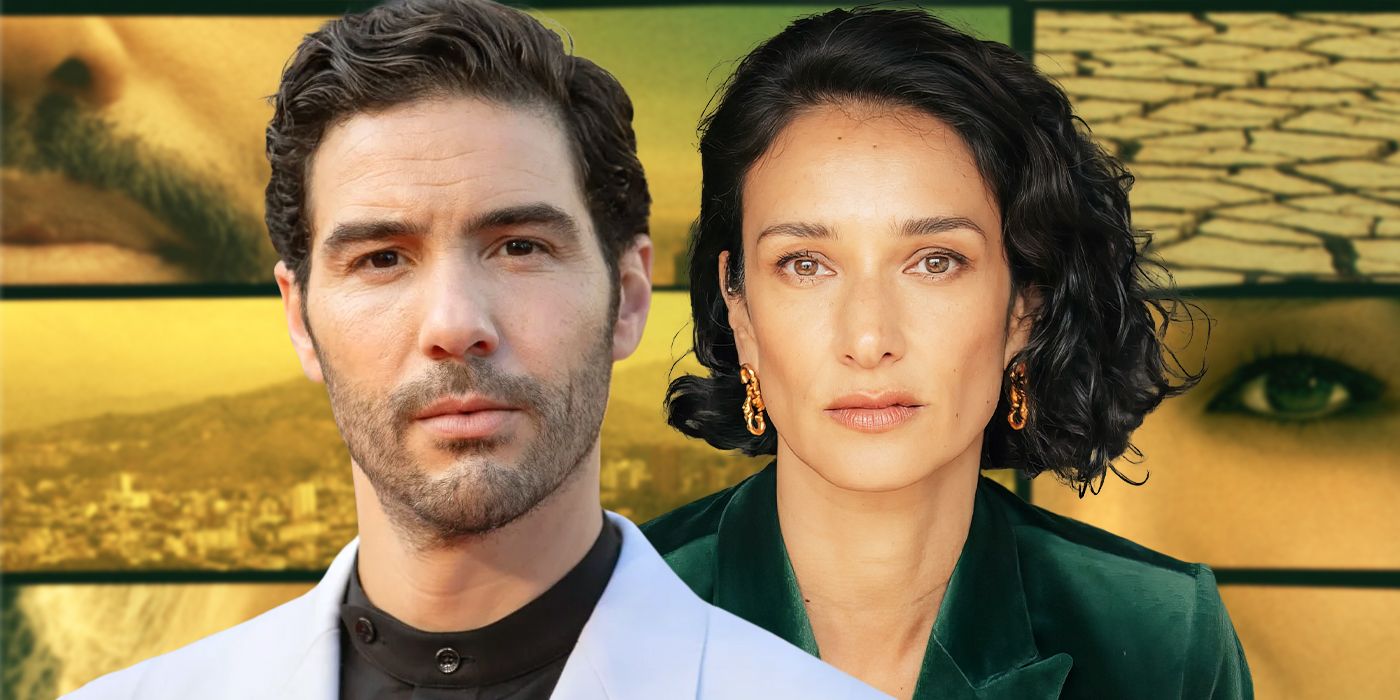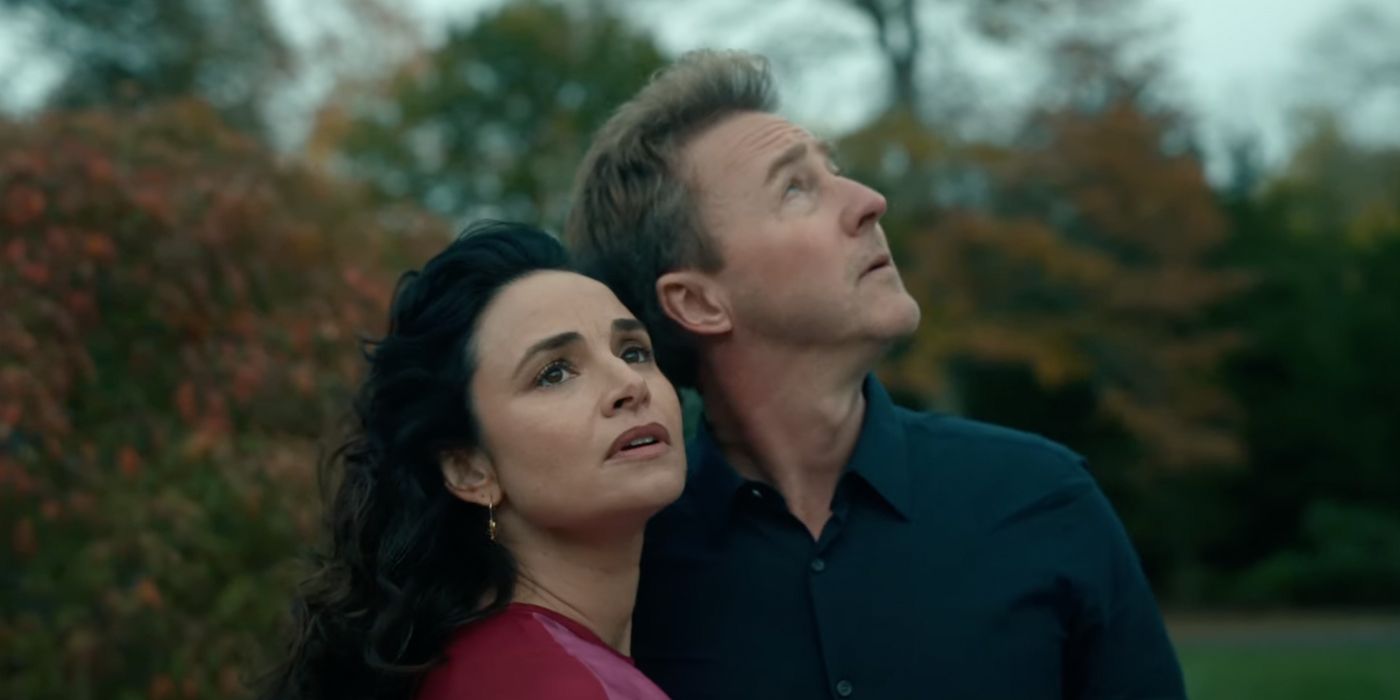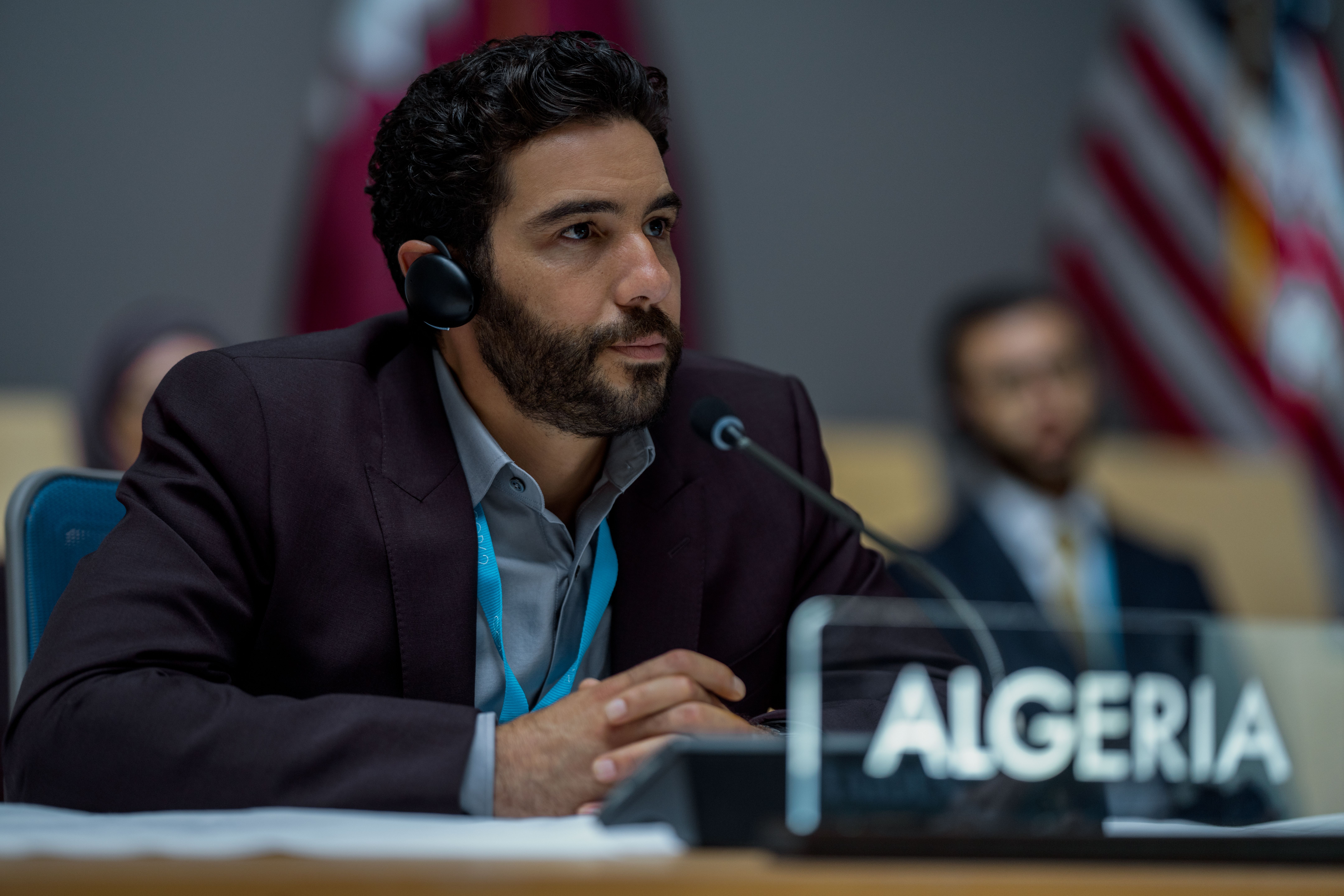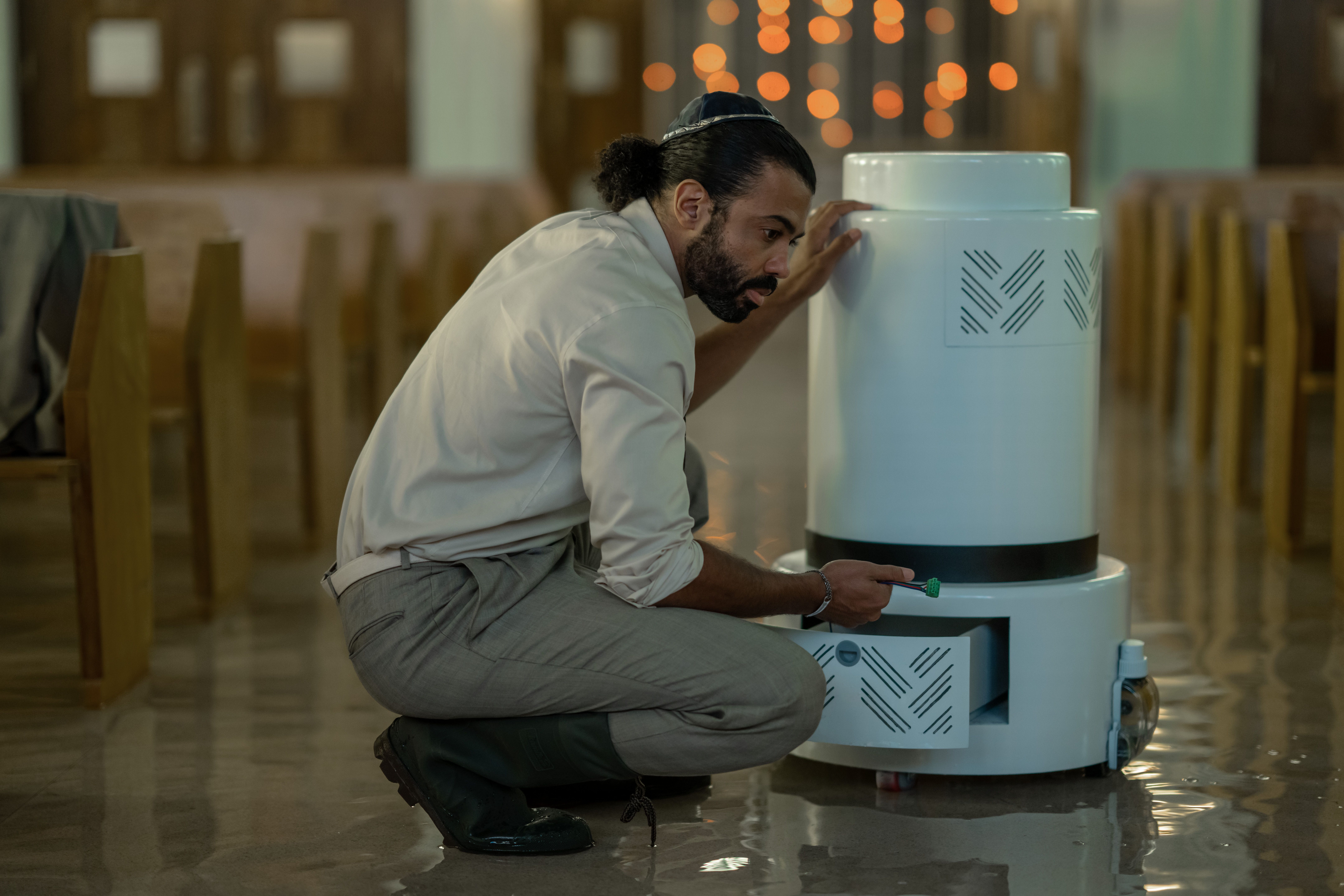Scott Z. Burns’ latest science not-so-fiction series, Extrapolations, is now streaming on Apple TV+ and Collider’s Steve Weintraub sat down to talk with two of those stars, Tahar Rahim (The Serpent) and Indira Varma (Obi-Wan Kenobi), about the importance of joining this project and how it could affect viewers.
In what Varma describes as the “ultimate storytelling,” Extrapolations depicts the very near future of 2037 and on, and the frightening consequences of the climate crisis, in eight episodes. Though each episode is a standalone story spanning three decades, the characters interconnect as they navigate a changed world, from raging wildfires to rising sea levels and beyond. In addition to Varma and Rahim, Extrapolations stars Academy Award-winners Meryl Streep, Forest Whitaker, and Marion Cotillard, as well as Edward Norton, Tobey Maguire, Gemma Chan, Daveed Diggs, and more.
During their interview, Varma and Rahim tell us why it was important for them to be a part of this series and to work with Burns, and talk about the real science behind the science-fiction-level catastrophes portrayed in the show. They both tease their characters and episodes, discuss how “art meets life and data,” and what would be most shocking for viewers to learn about the series. Rahim, who you can next catch in Sony Marvel’s Madame Web and Ridley Scott’s Napoleon, and Varma who’s set to appear in Netflix’s upcoming adaptation, Obsession, both tease what they can. You can watch the interview in the video above, or read the full conversation in the transcript below.
COLLIDER: Let me start by saying I've seen the whole series and loved it. I can't recommend this enough for people to watch. It's very powerful and important. For both of you, can you both talk a little bit about what it was about the material that said, “Oh, I have to do this.”?
INDIRA VARMA: Well, personally, I think climate change is a really important subject and I think we are sort of bombarded with a lot of climate information about what's really happening in the world. A lot of data that doesn't really mean very much to many people. And so, when art meets life and data, as it were – math, something I'm not very keen on – and it's entertaining, it's like a no-brainer for me. That's what I wanted to do. It's like the ultimate storytelling that has a purpose. For me, that was it. And also being made by Scott Burns who really knows how to tell a story, great writing.
TAHAR RAHIM: Oh, yeah, same thing. Being part of such an important story to tell, that needs to be told, to tell the audience that it's important to think about our future, our planet, and make them a little more aware of what's happening now, and that there's still a hope that we can change things if we do it now. And at the same time, as an actor, being offered a part like this in such a beautiful show, being part of such an incredible cast, working with Scott, especially because my two episodes were directed by him. I didn't have the honor to work with you, Indira, and the others, so I'm really excited to see it, too, because I haven't read the episodes and I haven't seen them. But yeah, mainly the topic and, selfishly, as an artist, being part of a beautiful, compelling show.
Tahar, I have to ask you an individual question. My favorite of the eight is Episode 6, which is one that you are a part of. In fact, I mean, it's your episode essentially. What was it like for you reading that script? Because it's so beautiful and heartbreaking, and it just feels real, you know, the depiction of the future.
RAHIM: Thank you so much. Yeah, you know, when I first read the script, I was amazed by the quality, it was so obvious to me. I felt like really jumping in the future, that it was real, even if it's, in terms of writing, fiction, but it's based on science, and it was crazy to feel like a young man in the future being affected by what we've done in a way.
My character is not even talking about climate change, he's in it, he's a victim of that because he's got an illness and all. More personally, it was so challenging to play many different roles and different languages, and that emotional journey that Ezra’s going in was beautiful because it's heartbreaking, and at the same time, at some point, there's hope, there's a light. He's going to meet somebody, the great Gemma Chan, and then– I don't want to spoil.
Right, exactly. No, I don't want you to spoil anything. One of the things that the series does so well is it involves real people, but also people at the highest levels of government. You're seeing all sides of it. You basically play someone who is – I don't want to give too much away, but is willing to do things to try to help the planet.
VARMA: Yes, Ghita is– she has power, basically, as a billionaire. She also has her own motivation and reasons why she wants to save the planet. But I think she wants to play God because she has that much power. It's funny, isn’t it? Because we're talking about how some of the themes within this series– one of the themes is greed. It's like, what motivates? Like, what makes us do something, or not do something, and why are we doing that thing? And I think that is one of the things that I find quite interesting as to Ghita’s own motivations within the series.
Definitely. For both of you, I'm always curious about how things are made and the behind-the-scenes. So for soon-to-be fans of the series, what do you think might surprise people to learn about the actual making of the show?
RAHIM: Hard question. [laughs]
VARMA: Maybe people would be surprised by how much of it is real science.
RAHIM: Oh, yeah.
VARMA: I think that's quite shocking. I mean, it's all stuff that exists, it's all technology that exists now, but Scott has extrapolated how it might be used, or how it might be developed, in 30 to 50 years' time. Yeah, I think that would probably be shocking and surprising, and hopefully galvanizing.
One of the things that I think is great about the show is it's one thing to read about how in the future people will walk around with an oxygen mask and an oxygen tank. It's another thing to see people actually doing it in a realistic portrayal while also just dealing with their normal lives. Hopefully, a series like this can really impact the conversation in our government leaders. Can you talk about how art can sometimes really impact the real world?
VARMA: Well, I think you just put the nail on the head, really, you've just hit the nail on the head. I think it's that thing of, often problems can feel like they're happening elsewhere, or to other people, if you're in a position if you live somewhere where you're not affected by climate change. So actually seeing it helps people feel, and then hopefully they'll realize that stuff needs to be done. And it's not just the individuals – we as individuals, we all need to change our lifestyles – but it's also big government, it's big industry, it's big business. We need to pressure them in order to change, as well, and stop greenwashing, all that kind of thing, and reduce carbon emissions, etcetera, etcetera, etcetera.
Before I run out of time, I'm going to ask an individual question for each of you. You're both in upcoming projects that I'm very excited about. Tahar, you are part of Madame Web and, I believe, Ridley Scott's Napoleon, which I'm very excited for. And Indira, you're part of Dune: The Sisterhood and some Mission: Impossible movie. I've heard about that. Can you both tease your upcoming roles and these upcoming projects, if you don't mind?
RAHIM: Ooh [laughs], I wish I could talk about Madame Web. All I can say is that it's a beautiful story, different than what we've seen before and that you're gonna love it, as I did.
Napoleon, I can talk a little bit more about. I’m playing Paul Barras who was one of the five– was the most important and influential director of the directory in the post-French Revolution, and he's the one who discovered Napoleon.
VARMA: I've actually got something for Netflix coming out called Obsession. It's based on the Josephine Hart novel, Damage. I don't know if you remember there was a film, Jeremy Irons and Juliet Binoche in the ‘90s, and that's being remade. Well, we remade it. That's coming out fairly soon. That's quite fun. Totally different to this. And the other two science fiction projects are… well, not a patch on this because this is real science non-fiction.
Extrapolations is now streaming on Apple TV+.




